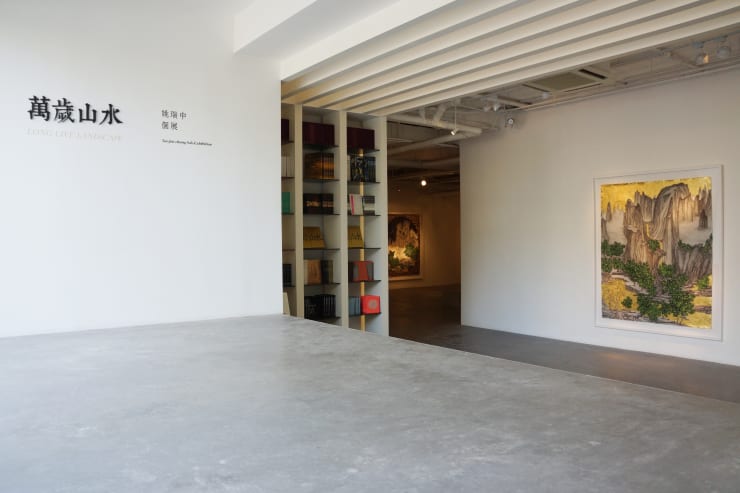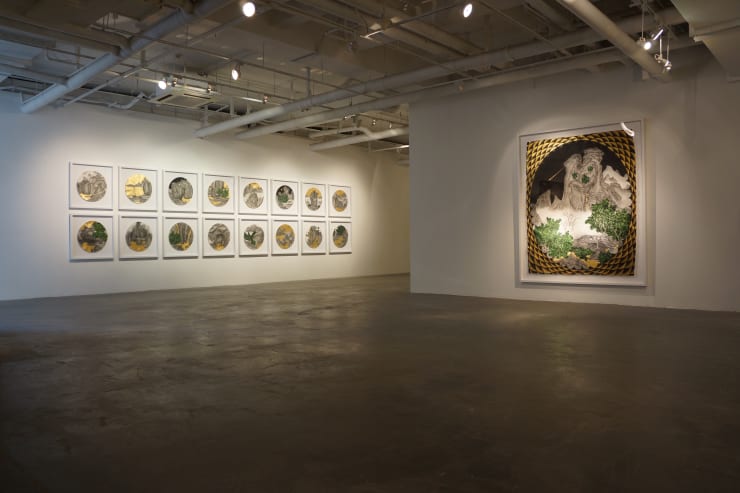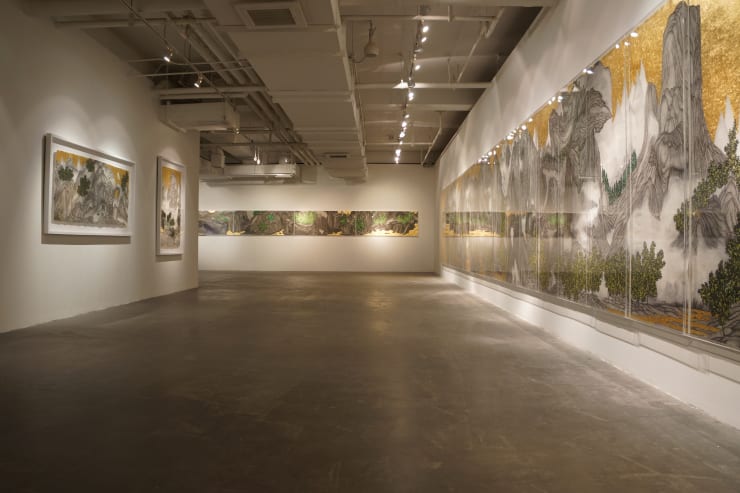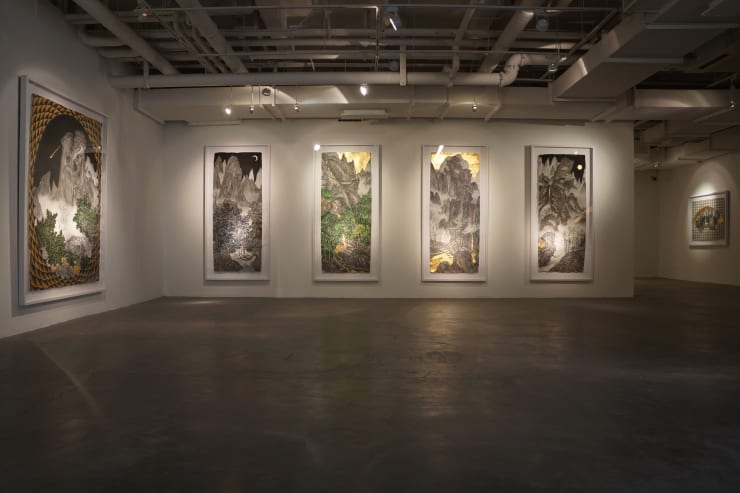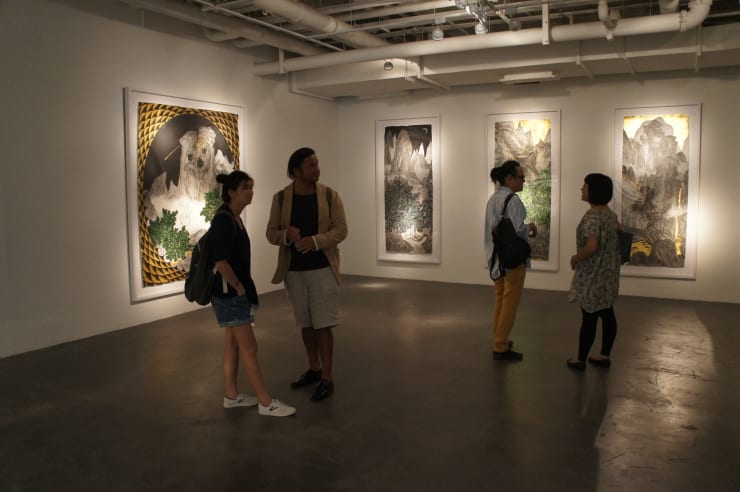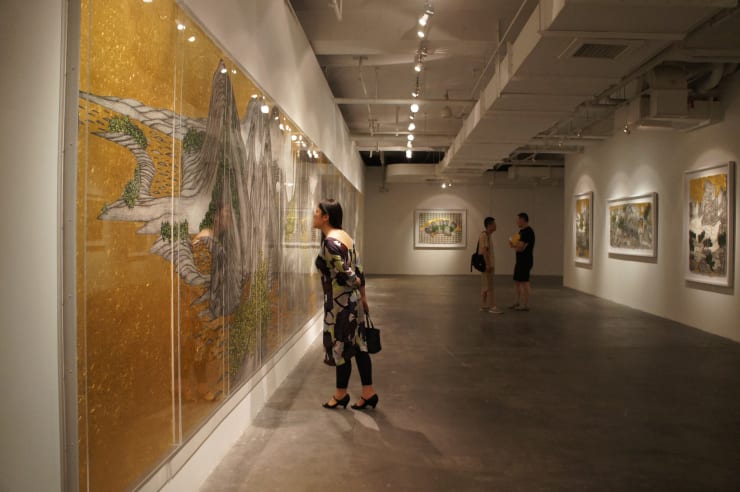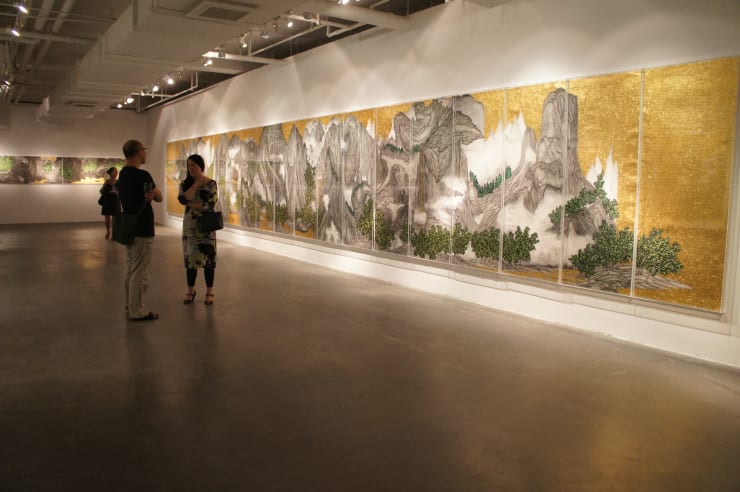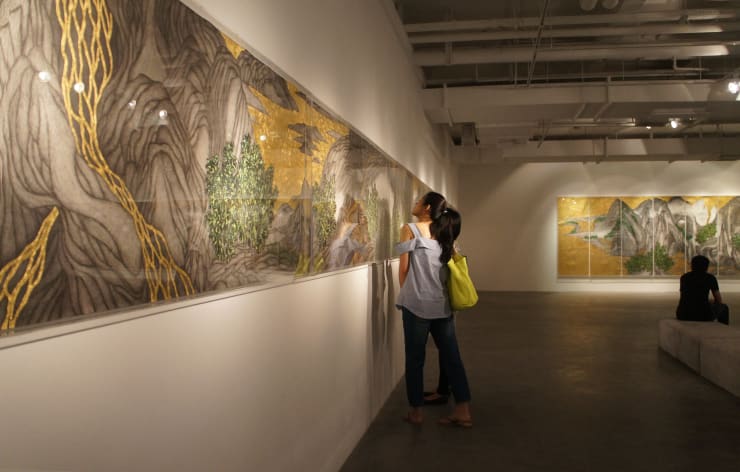Long Live Landscape: Yao Jui-chung Solo Exhibition
The Tina Keng Gallery (Beijing) is proud to present Long Live Landscape, Yao Jui-chung’s first solo exhibition in China, on view from August 4to September 16, 2012 (opening reception: August 4, 4:30-7:00 p.m.). With the demise of traditional Chinese landscape painting, the quest for aesthetic innovation through the imitation of the classics is one of Yao Jui-chung’s most current creative concerns. The exhibition features37 works, among them landscapes from his recent two-part exhibition in Taipei, Long Live/Landscape, as well as new works exhibited for the very first time. The opening reception will take place on Saturday, August 4, from 4:30pm to 7:00pm, and will be preceded by a conversation among Yao, artist and curator Qiu Zhijie and critic Feng Boyi at 2:00pm.
At the core of the exhibition are two monumental works, the Long Live Landscape I(2012) and the Spirited Away(2012). Long Live Landscapeis an interpretation of the famed work by the Late Ming Dynasty artist Wu Bin (active ca. 1583-1626), On the Way to Shanyin. The unexpected twists of Wu Bin’s landscape provide a counterpart for the dry yet lush, treacherous Taiwanese mountains. A black-clad leader, with upraised arm calls out “Long Live!” as he stands on the island that was once used as the base for the Chinese Culture Restoration Movement. For Spirited Away(2012) inspired by Xiao Yuncong’s (1591-1668) Hidden Peaks among Green Hills, Yao subtly places a family scene in the familiar mountains of Chinese landscape paintings, adding a hint of humor and warmth in the otherwise serene landscapes.
Though he owes much in composition to Chinese ink paintings, Yao’s making of his shan shui differs greatly. He uses a fine-point pen, rendering each line distinct, rather than a calligraphy brush, with its soft strokes. The ink lines are layered on to the paper’s rough surface, with shades of varying intensity, to simulate the effect of flatness through an array of busy and comparably turbulent lines. In this way, the “pseudo landscapes” formulated through intensive labor, evoke the tragic solemnity exemplified in Chinese literature: “the silkworm only stops weaving upon its death.” Gold leaf fills the empty spaces of the composition, possessing a charm typical of Buddhist wall paintings. The trees, covered in glitter similar to children drawings, add in the finishing touches. Yao deliberately avoided traditional materials and methods such as inscriptions, seals, rice paper, moss dotting, traditional binding, brush strokes, and ink wash, in the creation of this series. The result is a mixed style, which appears to be recognizable within traditional aesthetic parameters, but cannot be truly identified. The style can be seen as an implicit rebellion against grand conventions.
Yao Jui-chung
Yao Jui-chung was born in Taipei, Taiwan (1969), and received a BA in Art Theory at the National Institute of the Arts (now Taipei National University of the Arts) in 1994. His work has been collected by Taiwanese museums, including the Taipei Fine Arts Museum, the Kaohsiung Museum of Fine Arts, the National Taiwan Museum of Fine Arts, as well as international collections, such as the Queensland Art Gallery (Australia), the Herbert F. Johnson Museum of Art (USA), and the Bibliothèque nationale de France. He has represented Taiwan at the Venice Biennale (1997), participated in the Yokohoma Triennale (2005), the Asia Pacific Triennial of Contemporary Art (2009), YES TAIWAN: 2010 Taiwan Biennial(2010), and the Shanghai Biennale (2012).Most recently, his works have been on view in the solo exhibitions Long Live/Landscapeat Tina Keng Gallery, Taipei (2012) and Dreamyat Goedhuis Contemporary, London (2010); as well as in group shows, including Dual Senses and Dynamic Views—Contemporary Art Exhibition across the Taiwan Strait of 2011at the National Art Museum of China, Beijing (2011) and Ink: The New Ink Art from Chinaat the Saatchi Gallery, London (2012).
